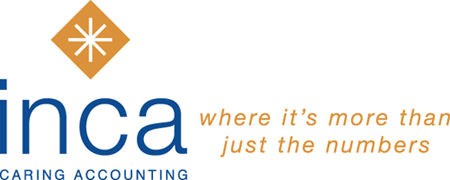In the fiscal year 2017-18, the total value of HMRC tax receipts for the UK amounted to £594.3 billion*.
Collecting taxes is a vital job that benefits us all, and while HMRC won’t be top of most peoples’ Christmas card list, no one who abides by the rules of the tax system has anything to worry about.
This said, navigating our complex tax system without specialist advice can be confusing, and even honest taxpayers sometimes unwittingly make mistakes which can lead to them not paying all the tax they should.

There’s nothing wrong with structuring your affairs to be as tax-efficient as possible, so liability is minimised, but evading tax by omitting to disclose all your taxable income – whether deliberately or otherwise is a different matter.
It’s illegal and will lead to penalties, fines – or even worse.
If you should find you’ve made an error in reporting your income to HMRC, you need to own up right away. As long as your mistake was made in good faith, acting proactively will stand you in good stead as you negotiate an arrangement to settle any tax you owe.
If on the other hand, you leave it until HMRC uncover the error (as they most certainly will), you’ll find the process and the eventual outcome a lot more painful.
HMRC is using increasingly sophisticated ways to track down people who aren’t paying the tax they should. There are two areas they are currently focusing their attention on:
1) Undeclared rental income
Anyone who has a rental property should be declaring their rental income. It’s an area HMRC have been getting hot on for a while now, actively seeking out landlords who are evading paying the correct tax.
To assist them in their task, they have access to data from a range of sources. These include local authority licensing and tenancy deposit schemes – and HMRC is now also automatically notified of anyone taking out or renewing a buy-to-let mortgage.
If your name pops up on one of these databases and you don’t appear to be paying either any or the correct tax on rental income, you can expect HMRC to pay you a call. And it could be a costly visit. HMRC can demand tax on rental income going back up to 20 years, and impose a fine of up to 100% of the figure in question. Not to mention the fact that you’ll also end up with a criminal record.
One thing that sometimes catches out buy-to-let landlords is correctly calculating expenses. We’ve met landlords who believe they’re entitled to set the whole of their mortgage repayments against rental income – rather than just the interest. It might be an innocent mistake, but the result for anyone making it is that HMRC will come after them for the shortfall.
If you’re a landlord and find you’ve inadvertently been reporting your rental income incorrectly, you need to disclose everything to HMRC.
By voluntarily contacting them through their Let Property Campaign, you will pay a lower penalty (in some cases, you may not have to pay any penalty at all), HMRC may not go back the whole 20 years, you will be given time to pay, and except in exceptional circumstances, you won’t be prosecuted.
2) Undeclared income from overseas assets
If you’re a UK resident, you have an obligation to declare any income you earn from overseas assets such as investments or property, in addition to your UK earnings.
New legislation called ‘Requirement to Correct’ requires UK taxpayers to declare their overseas financial interests, and HMRC has been urging people to avoid higher tax penalties by declaring any foreign income or profits on offshore assets.
This can include.
- Renting out an overseas property
- Renting out a UK property when living overseas
- Transferring income and assets from one country to another
And HMRC has the means to detect anyone not complying with the rules. With effect from 1st October 2018, the Common Reporting Standard (CRS) enables over 100 countries including the UK to exchange data on financial accounts.
More than 17,000 people have already contacted HMRC to notify the department about tax due from sources of foreign income!
Taxpayers can correct their tax liabilities by using HMRC’s Digital Disclosure Service.
If you’re a landlord or you have overseas assets and are unsure whether you are declaring everything you need to be to HMRC, you should seek advice from your accountant or tax adviser as soon as possible.
*https://www.statista.com/statistics/284298/total-united-kingdom-hmrc-tax-receipts/
Declare or Beware!
At Inca, we can help landlords get their affairs in order in a planned way, and assist individuals who have overseas assets to correctly complete their Self Assessment tax returns.
Don’t wait for HMRC to call you – call us first. Get in touch now for an informal chat on 01235 868888 now or email us at [email protected]!




